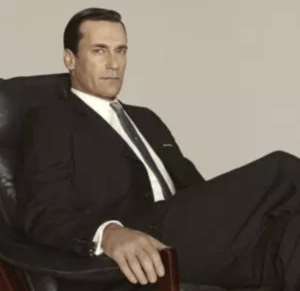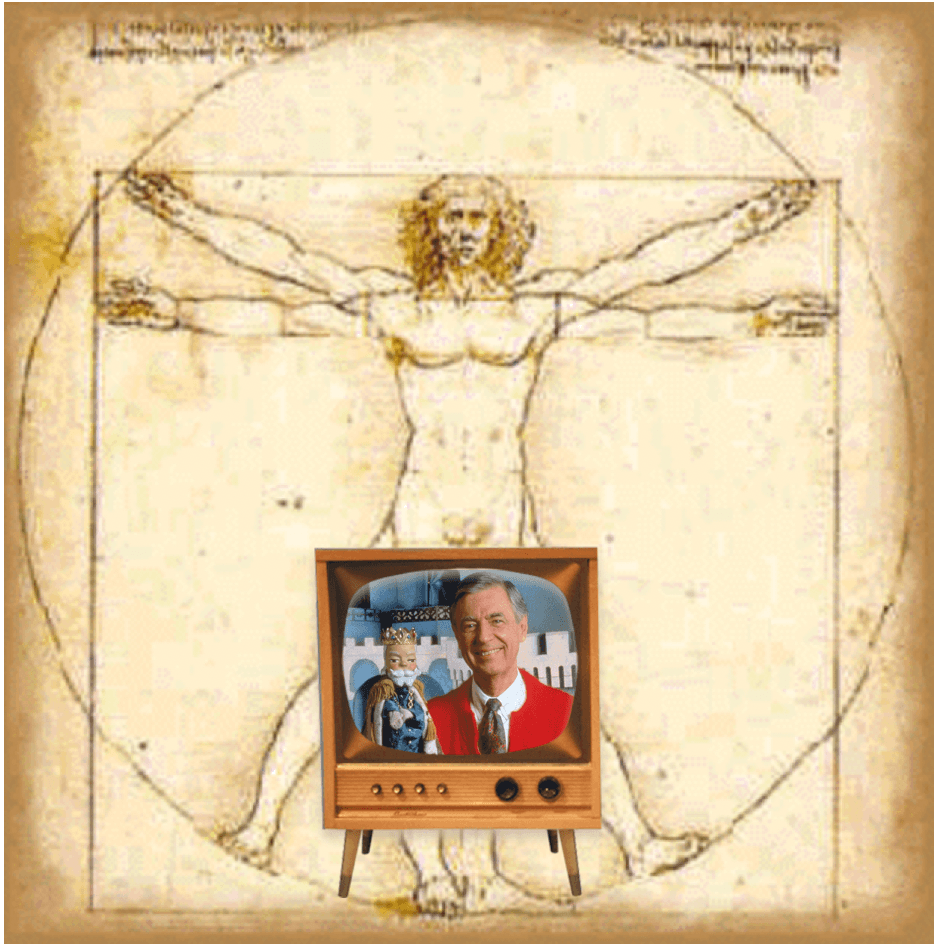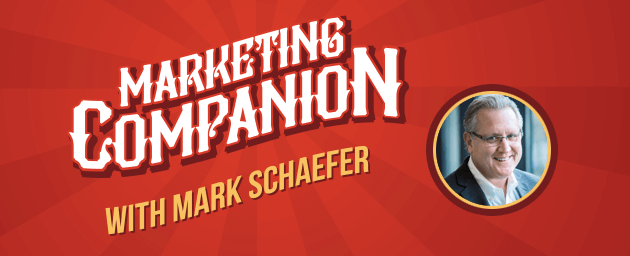By Mark Schaefer
When I was a kid, the only way you could get a TV show was by having an antenna on your roof. For some reason I still don’t understand, often the reception would be better if a human being stood near the TV. Somehow that funneled the TV rays into your box.
As fate would have it, my young body was perfectly formed for this anomaly. The reception would be poor and I would stand near the TV, sometimes leaning slightly forward with arms spread in a launch position, trying to get the perfect reception. So, I normally stood through every TV show. This was the first way I recall adding value to my family and I have very strong arms to this day.
For this reason, and others, I hated television as a child.
I was the oldest of six children so the only programs that aired in our home 24-7 were “Mister Rogers” and “Sesame Street.” I spent most of my childhood outdoors simply to get away from “Won’t You Be My Neighbor” and that irritating “Count” puppet. When the weather was bad (and it had to be REALLY bad for me to stay inside) I would read books.
TV programming was dictated by a time slot, limited to four channels, and filled with ads. Plus, I had to stand for every program. For this reason, I never had a TV habit. Even as an adult, I preferred to read.
Until Mad Men.
Don Draper changed it all for me

Today, that price seems ridiculous, doesn’t it? Streaming TV rapidly evolved and today I can call up hundreds of shows and movies any time I like for a low monthly price.
Can you imagine how Apple felt giving up that $38 and putting it into a streaming mode for free?
These days, I like TV. I watch more TV than I’ve ever watched in my life because it is on demand, inexpensive, ad-free, and superb. I’ll never pay $38 for a single season of a TV show again. Nobody will.
In fact, every year, the television-based content I consume is getting less expensive, more accessible and higher-quality. For example, companies like Apple, Disney and Wal-Mart/MGM are planning to enter the streaming TV game. What will it take for them to compete? Extraordinary content at an even lower price.
The content evolution and you
We can learn a lesson from this content progression.
In the early days of the internet people thought they could still “box-up” their best content and sell it online. But every time somebody tried to do that, a competitor entered with better content at a lower price. Now, everybody has to give away their content for free. And we’re spending more and more on quality … just to give it away for free. In a sense, we are paying people to consume our content.
The same thing has happened in the music industry and we can see it beginning with TV and movies, too. For example, it’s no longer good enough for Netflix to merely show movies at a low fixed price, so the company is spending hundreds of millions of dollars on exclusive original programming with box office stars to hold onto to its subscribers.
The lesson for you
I’m assuming you’re a marketer who is vitally interested in finding a way to make content work for your business. What can we learn from history?
- To earn attention, you have to continually provide better content at a lower price. A sad but unavoidable fact.
- This means abandoning any idea of charging for your content. By the way, that includes asking for an email address in exchange for your eBook or whitepaper. It’s sort of like iTunes coming to grips with that lost $38.
- If you’re entering the game late (like Apple or Disney) you’ll have to come out with guns blazing. Both of those companies are spending billions on original content.
- The early entrants like Netflix are not standing still. They’re doubling down on content quality to raise the entry barriers for others.
My main point is that content marketing does not work today like it did five or six years ago. You might be lucky and find a niche devoid of useful content, but that’s getting increasingly rare. Content is no longer a commodity. You can’t earn an audience by simply having a blog or YouTube channel.
If you own a content niche, don’t stop innovating and pushing the quality higher.
If you’re new to the game, the only way to win is to provide a superior experience at a lower cost.
Agree?
 Mark Schaefer is the chief blogger for this site, executive director of Schaefer Marketing Solutions, and the author of several best-selling digital marketing books. He is an acclaimed keynote speaker, college educator, and business consultant. The Marketing Companion podcast is among the top business podcasts in the world. Contact Mark to have him speak to your company event or conference soon.
Mark Schaefer is the chief blogger for this site, executive director of Schaefer Marketing Solutions, and the author of several best-selling digital marketing books. He is an acclaimed keynote speaker, college educator, and business consultant. The Marketing Companion podcast is among the top business podcasts in the world. Contact Mark to have him speak to your company event or conference soon.



